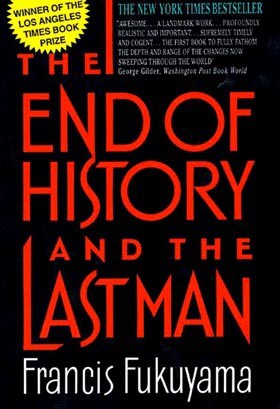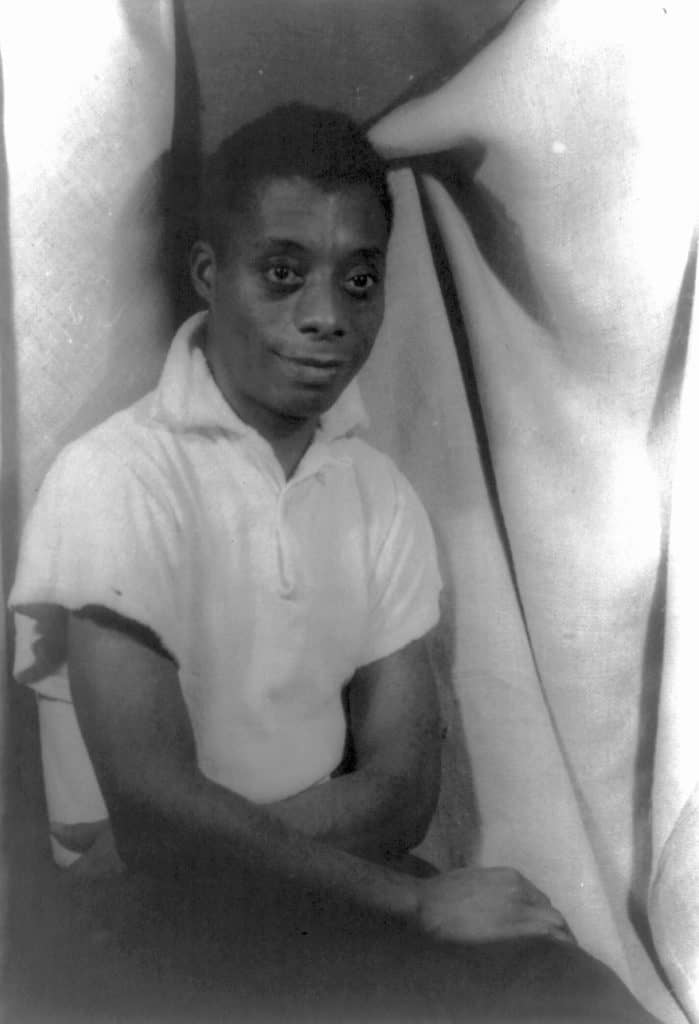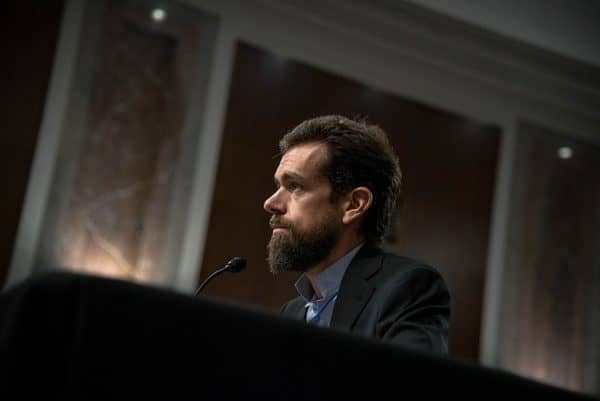The Empire of Dreams
GREGORY HOOD • DECEMBER 3, 2020
Bruno Maçães, History Has Begun: The Birth of a New America, Oxford University Press, 2020, 248 pp.
History Has Begun is a very important but badly flawed book. Bruno Maçães, Portugal’s former foreign minister and now a senior fellow at the Hudson Institute, perfectly describes the myth of American civilization, arguing that America was founded on “the promise of fantasy.” America lets people live out compelling stories, something which is central to our national identity and power.
Mr. Maçães writes that American civilization truly separated from European civilization when television was born, allowing “artificial” or “hyperreal” stories to have more meaning than realty. If classical liberalism no longer lets us live out our fantasies, a “society of stories” is how we rediscover purpose. Unfortunately, Mr. Maçães’s own blindness about racial reality, media power, and the ends media serve undermines his achievement.
The author is right about two things. First, classical liberalism, especially as explained by John Rawls, can no longer satisfy. Rawls’s model of justice gives people certain universal rights and lets them think anything they like in private. Traditional religious communities and eccentric artists can co-exist because they share “fundamental political principles” which each group can adopt for its own purposes. Freedom of expression protects both the Christian and the Satanist.
However, Mr. Maçães notes that the divide between “public” and “private” isn’t clear: “[T]he demand for a just politics will invade the whole of our private lives.” I’d argue this is what anti-racism is doing today. Rawls-style liberalism also means there is no common vision of the Good. Liberalism may lead to domestic peace but it’s also without a larger purpose.
Mr. Maçães’s second major point is that Americans experience reality vicariously, like characters in a movie. We are so conditioned by television, movies, and the internet that we can’t help but see our own lives as part of a fantasy. I remember that the most common phrase I heard on September 11, 2001 from horrified friends was that “it was like a movie.”
American civilization, Mr. Maçães says, was always defined by flights into fantasy. First, Americans could create new realities on the frontier away from European social norms. Later, Americans created artificial realities through the screen. Gradually, these realities became more “real” than reality itself, and the political consequences were immense.
For example, Ronald Reagan was effective because he played the president of the United States like the actor he was. Reagan didn’t achieve his goals, some of which were antagonistic, such as joining free market capitalism with traditional social values. It didn’t matter. Reagan succeeded “by endowing the personal mythologies of business and family values with the same power of those translucent images which the moviegoer replays in his mind as he leaves the theatre, holding the promise of a more exciting and more beautiful life.” The Great Communicator gave Americans a powerful dream we wanted to believe in.
President Donald Trump went even further. “[H]e does not use the tricks of entertainment to appear a better politician,” writes Mr. Maçães. Instead, “[H]e uses politics as a better stage for his performance as an entertainer.” In the midst of desperate political struggles, President Trump tweets about his high television ratings or gloats over the collapse of Fox News and Matt Drudge.
The last few years have seen the rise and fall of various storylines, including Donald Trump as Russian agent, the battle over impeachment, the COVID-19 pandemic, and now, the fight over “rigged elections.” It’s a television show that even (or especially) Donald Trump’s enemies can’t turn off. Around the country, suburban housewives can pretend they are in the #Resistance against an authoritarian dictator or Christian theocrats (a plot straight out of The Man in the High Castle or The Handmaiden’s Tale). Meanwhile, conservatives use their social media accounts to save the Republic from a ring of satanic pedophiles.
American life, argues Mr. Maçães, is bland and unsatisfying, with the uninspiring modern vision of life best portrayed by Sinclair Lewis’s Babbit. Mr. Maçães calls it “arguably the greatest American novel ever written because it depicts in vivid detail the path of American modern society before that path was even intelligible to the vast majority of Americans.” The eponymous hero has a family, material comfort, and safety, but feels life is meaningless. “The solution he [Babbit] envisages is different from the vain and futile attempt to improve society,” writes Mr. Maçães: “Preserve the social and economic fabric in its current form but grant each person the freedom to break with convention in his or her actions.” Mr. Maçães argues that the internet and the vicarious world of streaming entertainment makes this easier than ever, allowing us to live in “unreality.”
This must be more than passive entertainment. Mr. Maçães defends the right of communities like the Old Order Amish to live according to their truth, even if it means carving out exceptions to rules about universal education. It is better to pursue meaning than the “contemporary European culture of café life and momentary sensation.” The state shouldn’t mandate truth. It should give us passports for our own journeys.
Mr. Maçães calls “the quest for total immersion” the “holy grail of modern politics.” We can have a “society of stories” that can create new experiences and, more importantly, “genuine feelings and thoughts in a completely artificial environment.” He repeatedly refers to the television series Westworld, which gives visitors to an imaginary theme park a truly immersive experience that is nonetheless “artificial” because the robots in the park can’t hurt you. “The fundamental right is a safe word or a kill switch allowing us to stop the game or experience,” Mr. Maçães says, describing the way this new society could operate.
Mr. Maçães is right that classical liberalism, particular of the John Rawls variety, is exhausted. In my own view, it is the world of John Lennon’s “Imagine,” a world with nothing to “kill or die for, above us only sky.” To a modern consumer, to Nietzsche’s Last Men, it is heaven. To me, it is hell, and I am not alone. Aris Roussinos recently argued that Francis Fukuyama was right when he said in The End of History that there may be deeper sources of discontent within liberal democracy. Mr. Roussinos wonders about the West — “whether life there is truly satisfying.” [emphasis in original]
This is a challenge to Mr. Maçães’s claim that history isn’t over, that it’s just begun. Oddly, Mr. Maçães doesn’t mention Francis Fukuyama. If he did, he would have to admit that The End of History predicted that liberal democracy might not just face challenges from those who want to show superiority over others by striving for glory and renown. It could also be destroyed by the impossible quest for total equality.
American society suffers from both. Most of History Has Begun was written before COVID-19 and the Black Lives Matter protests. An add-on chapter barely serves to cover them, and Mr. Maçães gets a few things badly wrong. He writes that “when George Floyd was murdered by asphyxiation while handcuffed lying face down on a city street” this started a vital movement because “racial justice means the freedom to pursue your dreams without turning other human beings into objects of your darkest fantasies,” and “freedom runs the risk of becoming an extravagant and selfish fantasy life.” Mr. Maçães is indulging in luxury beliefs. If being free to live away from blacks is “an extravagant and selfish fantasy life,” what good is the freedom he professes to admire? If there’s no escape from egalitarianism, we are slaves, even with the blessing of the Open Society.
Earlier in the book, Mr. Maçães quotes James Baldwin: “White Americans do not believe in death, and this is why the darkness of my skin so intimidates them.” Mr. Maçães says that whites made blacks into an image of fallen humanity so that they could emerge as something greater. Drawing on Baldwin, Mr. Maçães says whites used race to make sense of the world: No matter how bad their circumstances, Baldwin and Mr. Maçães argue, whites could comfort themselves that “at least they are not black.” Maybe this silly idea comforted Baldwin; Mr. Maçães has no excuse to parrot it.
Mr. Maçães says that America was uniquely built on fantasy because Americans could always go West. “Owing to the fact that all experience is a process, no point of view can ever be the last one,” he says. “Reality genuinely grows. Truth is life on the frontier [emphasis added].”
It was on the frontier that race realism began. The Jamestown settlers arrived with kindly intentions and no sense of racial superiority, determined to bring peace where the Spanish had brought war. The Powhatan tribes tried to exterminate them three times. New England Puritans were as naïve about race as their modern-day Yankee descendants. It took King Phillip’s War to wake them up.
While colonial Americans (especially the Scots-Irish) fought the Indians, London tried to keep racial peace with the Proclamation of 1763, which would have prevented westward expansion. Early Americans tried to co-exist with American Indians but always had to fight them.
White Southerners understood blacks far better than Northerners did; Boston and Detroit were shocked by rioting that exploded after the Civil Rights Act and the Voting Rights Act. Likewise, it was the United Kingdom that undermined Rhodesia and then South Africa, nations that had far more experience with blacks. It did Britain no good; Enoch Powell correctly said that his country had imported the “preventable evil” of racial conflict.
James Baldwin was wrong. We believe in death because we have faced it ever since our ancestors landed on this continent. Mr. Maçães says Hurricane Katrina made the United States seem like a “failed state” to much of the world, but this was just racial reality. “When blacks are left entirely to their own devices, Western Civilization — any kind of civilization — disappears,” Jared Taylor wrote of the chaos of New Orleans after the hurricane. The late Baldwin’s navel gazing doesn’t change this nor does Mr. Maçães’s refusal to accept it.
Today, it’s educated, affluent whites who support Black Lives Matter. The white working class does not. Truth continues to be found on the racial frontier. Mr. Maçães approvingly quotes Ibram Kendi’s declaration that “race is a mirage but one that humanity has organized itself around in very real ways.” He doesn’t mention that Twitter’s Jack Dorsey, who has more power to create “artificial realities” than almost anyone else alive, personally donated $10 million to Mr. Kendi. In the “artificial reality,” racism can be “solved” with money, reeducation, and repression. The truth is that race exists, despite what Mr. Kendi or Mr. Maçães claim to think.
Mr. Maçães writes that American life can be made meaningful with “fully immersive” experiences online and off. However, tech oligarchs have deplatformed (and, if we accept Mr. Maçães’s logic, depersoned) countless people for not following the script. The initial promise that the internet meant more self-expression, free speech, or artistic creation was betrayed. Instead, America has a Social Credit System worse than China’s, with Twitter, television, video games, and every aspect of cultural or economic life policed for thoughtcrime. It’s doubtful that government and corporate power would allow even one explicitly white community to survive. Mr. Maçães’s argument that people should be free to pursue total immersion requires freedom of association, a right we lost more than half a century ago.
Mr. Maçães argues that America is gradually becoming a civilization that is separate from Europe both because of America’s media dominance and Europe’s shame about World War II. “More than anything else,” he writes about Europe and America, “it is Auschwitz that pulls us apart.” However, it is precisely because of American media’s dominance that the Holocaust is the most powerful story in our culture. Americans are more horrified today by “Nazis” than they were in 1950, with an endless procession of television shows, movies, video games, and education programs teaching Americans about the evils of Auschwitz.
R.R. Reno’s Return of the Strong Gods argued that the entire Western order is built on opposing nationalism, traditional religion, and other ideas that supposedly led to the Holocaust. Mr. Reno said we must shake off this self-loathing, but complained that white identity is “perverse.” Instead, he wants some vague form of Christianity. Mr. Maçães’s argument is far weaker; Europe and America are united by the demons of Auschwitz, not divided by them.
What then is the value of History Has Begun? Mr. Maçães is right to argue that power today is media power — the power to define a story. A compelling story, even a political myth, is more important than truth. He cleverly says modern socialists want ownership of the “memes of production;” we do, too.
Since 2016, journalists and technology companies have throttled dissent. The story our rulers tell is crude but effective because they control media. “Charlottesville” will loom large in the history books even though Unite the Right 2017 was nothing compared to the violence Black Lives Matter has unleashed. With apologies to Ben Shapiro, feelings don’t care about your facts.
What is the answer? Mr. Maçães says Americans are characters living out our own imaginary dramas. He suggests this is something new, but I’d say it’s a degraded form of something old. Ever since antiquity, our people have seen themselves as acting within a mythic framework. The gods, the living, and the dead all participated.
The gods strove with men in Homeric times. Otherworldly beings populated the nine worlds of the pre-Christian North. God and demons could be found in every corner of Christendom during the Middle Ages. Even in the Age of Reason, leading figures self-consciously played out roles based on their heroes. Our Founding Fathers modeled themselves on Republican Rome. George Washington staged the play Cato during the winter at Valley Forge. The French Revolutionaries looked to antiquity for examples. Napoleon invited his men to share in a great romantic adventure. “What a novel my life has been!” he exclaimed at St. Helena.
Thus, Bruno Maçães’s American civilization isn’t so extraordinary after all. Men need a myth and a purpose. A “kill switch” kills life itself because what separates a Live Action Role Play (LARP) from heroism is danger. This book is important because it reveals liberalism’s dead end and suggests a path forward by fully immersing ourselves in our own ideals. However, we must walk this dangerous path without irony, without safety, and without hesitation. In any case, the System won’t let us play it out as a game (not even as a video game).
Bruno Maçães is wrong. America is still an outpost of Western civilization on this continent. Our people will rise or fall as one. Our rulers’ media mouthpieces tell a story about ineradicable white guilt. We have a better story to tell, one about defiance, triumph, and overcoming. Living out a myth isn’t make-believe. It’s acting as Alexander, Caesar, or Napoleon did. History demands everything from us, and we have a duty to give it everything we have.
https://www.unz.com/ghood/the-empire-of-dreams/








0 Comments:
Post a Comment
Subscribe to Post Comments [Atom]
<< Home